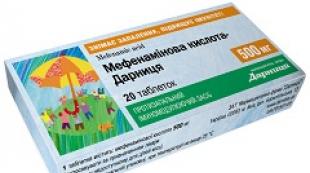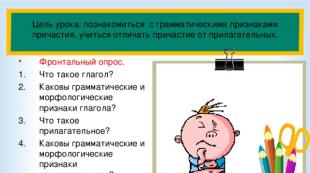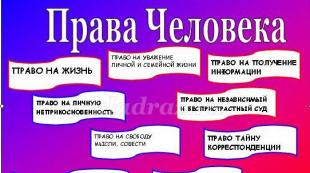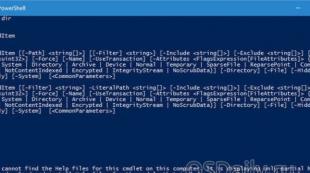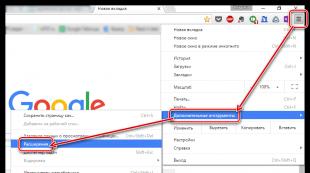Поурочные планы по английскому языку обновлена. План урока английского языка. Рекомендации
№2 The plan of the lesson
Grade :
Date :
The theme of the lesson : My family
The aims of the lesson :
- to develop their knowledge about family,
- to enter new lexical words as he,she
- to bring up pupils to love their family
Method of the lesson : Answer the questions
Type of the lesson:
The procedure of the lesson
I. Organization moment
Greeting.
Today we have a new guest. His name is Mr. Crow. Let’s repeat after him: ,Say: mother, fa th er, bro th er, th is, th ese, th ey
Now repeat after me:
-who is she?
-who is he?
-this is my mother
-these are my father and mother
II. Work with books .
Our theme in our lesson is “My family”
Ex.1. listen and learn
Track4.
Answer the question:
-who is she?
-who is he?
Ex2, ask and answer the questions
Track2.
-who is she?
-who is he?
-she is my mother
-he is my father
I II. Warming-up
Why do you cry, Willy?
Why do you cry?
Ex3. Listen and song.
Track . Listen and sing
IV.Conclusion.
Please, now you should tell me about your family.So, today, we knew how we can to answer the question “What’s your name?”, “How are you?”, “How old are you?” and we can count from 1 till 10.
Check:
№1
Theplan of the lesson
Grade :2
Date :08.09.15
The theme of the lesson : Greetings
The aims of the lesson :
- to develop their knowledge about numbers
- to enter new lexical words as old, new
- to bring up pupils to be careful for their books and things
Method of the lesson : Answer the questions
Type of the lesson: :CD disk, smiles, workbook, flashcards
The procedure of the lesson
I. Organization moment
Greeting.
Good morning, pupils! I am very glad to see you! Please, take your sits!
So, let’ start our lesson. Please, look at the picture on the blackboard. You are right.
Today we have a new guest. His name is Mr. Crow. Let’s repeat after him: [h],[h]Say: hi, hello, him, how, hide, his
Now repeat after me , . Let’s say together: name, eight, say,great.
II. Work with books .
Our theme in our lesson is “Greetings”
Ex.1. listen and read after the teacher.
Track1.
Answer the question:How oil is Alibek? Is Anar 8? How old is Masha? Is Bota 5? Is Olga 8?
Ex2, Listen and repeat.
Track2. Listen and repeat.
I II. Warming-up
Why do you cry, Willy?
Why do you cry?
Why, Willy? Why, Willy? Why, Willy? Why?
Ex3. Listen and song.
Track3
IV.Conclusion.
Please, now you will tell me about yourself. Then you should count from 1 till 10.
So, today, we knew how we can to answer the question “What’s your name?”, “How are you?”, “How old are you?” and we can count from 1 till 10.Thank you for your attention! Good-bye!
Check:
№3 Theplan of the lesson
Grade :2 «Ә»
Date :21.09.15
The theme of the lesson : Happy birthday
The aims of the lesson :
- to develop their knowledge about their olds and to learn to thanks themselves
- to enter new lexical words as old, a cake, a present, a hat, a balloon, a candle
-
Method of the lesson : Answer the questions
Type of the lesson: :CD disk, smiles, workbook, flashcards
The procedure of the lesson
I. Organization moment
Greeting.
Good morning, pupils! I am very glad to see you! Please, take your sits!
Today we have a new guest. His name is Mr. Crow. Let’s repeat after him: [ð],[ð]Say: birthday, three, thank you, school things
II. Work with books .
Our theme in our lesson is “Happy birthday”
Ex.1. listen and learn.
-It’s my birthday today!
-How old are you?
-I’m 8 years old.
-Happy birthday!
-This present for you
-Thank you!
Track6. Listen and learn
Ex2. I have some pictures. Let’slook it.(a cake, a present, a hat, a balloon, a candle)
Track2. Listen and learn the new words
I II. Warming-up
1,2,3- Clap your hands.
Up!-Strech arms up
4,5,6- Clap your hands
Down! Strech arms down
Ex3. Listen and song .
Track8
IV.Conclusion.
Please, now you will tell me about your birthday. Then you should count from 1 till 10.
So, today, we knew how we can to answer the question “How old are you?”and we can count from 1 till 10.Thank you for your attention! Good-bye!
Check:
№4 Theplan of the lesson
Grade :2
Date :29.09.15
The theme of the lesson : Holidays in Kazakhstan
The aims of the lesson :
- to develop their knowledge about our country and holidays
-
-
Method of the lesson : Answer the questions
Type of the lesson: :CD disk, smiles, workbook, flashcards
The procedure of the lesson
I. Organization moment
Greeting.
Good morning, pupils! I am very glad to see you! Please, take your sits!
So, let’ start our lesson. In the last lesson we knew to congratulate themselves with birthday. Today we will learn about holiday . (New year, Astana’s day, Victory day)
Phonetic ex.
Today we have a new guest. His name is Ben. He helps us to use [ŋ],[ŋ] Let’s repeat after him. Say after him: bring, sing, ring, king, morning
II. Work with books .
Our theme in our lesson is “Happy birthday”
Ex.1. listen and learn.
We have many holidays in Kazakhstan
We have New Year. We sing, dance and give presents
We have Nauryz. We have plov and nauryz-kozhe
We have Victory Day.We go to the park and bring flowers
We have the Day of Astana. Astana is the capital of Kazakhstan. It is a very beautiful city.
Track9. Listen and learn
Ex2. Say what holiday it is.
I have some pictures. You should say what holiday it is.
I II. Warming-up
1,2,3- Clap your hands.
Up!-Strech arms up
4,5,6- Clap your hands
Down! Strech arms down
Ex3. Name the action
You should look at these pictures and name these actions. What are they do?
IV.Conclusion.
Please, now you should tell me about holidays in Kazakhstan.
So, today, we knew about holidays in Kazakhstan. Pupils, let’s love our country. Thank you for your attention! Good-bye!
Check:
№5 Theplan of the lesson
Grade :2
Date :06. 10 .15
The theme of the lesson : Holidays in England
The aims of the lesson :
- to develop their knowledge about England and their holidays
- to enter new lexical words as holiday, to sing, dance, present, capital
- to bring up pupils to love their country
Method of the lesson : Answer the questions
Type of the lesson: :CD disk, smiles, workbook, flashcards
The procedure of the lesson
I. Organization moment
Greeting.
Good morning, pupils! I am very glad to see you! Please, take your sits!
So, let’ start our lesson. In the last lesson we knew to congratulate themselves with holidays. Today we will learn about holidays of England . What kind of holidays you know? (Christmas, Mother’s day, Easter, Queen’s birthday)
Phonetic ex.
Today we have a new guest. His name is Ben. He helps us to use [ ө ], [ ө ]Let’s repeat after him. Say after him: think, three, thirty, nothing, birthday, math
II. Work with books .
Our theme in our lesson is “Holidays in England”
Ex.1. listen and learn.
Track 10
We have many holidays in England too
We have Christmas with a Christmas tree and Santa Clause
We have Mother’s day. We give presents to our mothers
We have Easter in spring. We colour eggs at Easter
We have Queen’s Birthday in summer. We watch parade and sing Happy birthday for the Queen.
Holidays are great
Ex2.Answer the questions: yes, it is./ no, it isn’t
I II. Warming-up
Roses are red
Violets are blue
You’re my mom
And I love you
IV. Conclusion.
Please, now you should tell me about holidays in England
So, today, we knew about holidays in England. Pupils, let’s love our country and other countries too. Thank you for your attention! Good-bye!
Check:
№6 Theplan of the lesson
Grade :2
Date :13. 10 .15
The theme of the lesson : Professions
The aims of the lesson :
-
- to enter new lexical words as a driver, a pilot, a cook, a doctor,
-
Method of the lesson : Answer the questions
Type of the lesson: :CD disk, smiles, workbook, flashcards
The procedure of the lesson
I. Organization moment
Greeting.
Good morning, pupils! I am very glad to see you! Please, take your sits!
This is Mr. Wise Crow
Phonetic ex.
Sounds [ u: ] [ u ].
[ u ]-hook, cook, look, took, brook
[ u: ]-broom, room, ruler
II. Work with books .
Our theme in our lesson is “Professions”
Track 12
A driver
A doctor
Ex2. Guess the profession
I II. Warming-up
Look at the cook
He makes food
He has a spoon and
A cook book
IV. Conclusion.
Ex4 read, then say about yourself
Nowyou should tell me about professions. What kind of professions you know?
Thank you for your attention! Good-bye!
Check:
№7 Theplan of the lesson
Grade :2
Date :20. 10 .15
The theme of the lesson : Professions
The aims of the lesson :
- to develop their knowledge about professions
- to enter new lexical words as a taxi-driver, a teacher, a clown, a pianist, a vet, a policeman, a seller
- to bring up pupils to love work
Method of the lesson : Answer the questions
Type of the lesson: :CD disk, smiles, workbook, flashcards
The procedure of the lesson
I. Organization moment
Greeting.
Good morning, pupils! I am very glad to see you! Please, take your sits!
So, let’ start our lesson. Now look at the board. What can you see? Very good!
This is Mr. Wise Crow
Phonetic ex.
Sounds [ ow ] [ er ].
[ er ]-driver, seller, teacher
[ ow ]-clown, cow, flower, how
Great! Say Good-bye to Mr. Wise Crow
II. Work with books .
Our theme in our lesson is “Professions”
Ex.1. listen and learn the new words
Track 14
This is my father. He is a pilot.
This is my mother. She is a cook
This is my father. He is a taxi-driver
This is my mother. She is a doctor
This is my father. He is a teacher.
This is my mother. She is a teacher too
Ex2. Finish the sentences
I II. Warming-up
How are you? How are you?
How are you today?
I’m fine. I’m fine.
Thank you. Hooray!
IV. Conclusion.
Ex3. Say about your parents
My mother is a_________
My father is a__________
So, today, we knew about professions. Pupils, let’s love work
Thank you for your attention! Good-bye!
Check:
№8 Theplan of the lesson
Grade :2
Date :27. 10 .15
The theme of the lesson : Professions
The aims of the lesson :
- to develop their knowledge about professions
- to enter new lexical words as a cleaner, hard, big, rubbish, to throw
- to bring up pupils to love work
Method of the lesson : Answer the questions
Type of the lesson: :CD disk, smiles, workbook, flashcards
The procedure of the lesson
I. Organization moment
Greeting.
Good morning, pupils! I am very glad to see you! Please, take your sits!
So, let’ start our lesson. Now look at the board. What can you see? Very good!
This is Mr. Wise Crow
Phonetic ex.
Sounds [ sh ]
[ sh
Great! Say Good-bye to Mr. Wise Crow
II. Work with books .
Our theme in our lesson is “Professions”
Ex.1. listen and read
Track 15
This is Aigerimapa. She is a cleaner.
She works at school.She works hard.
The school is big.Look! What is this? It’s rubbishChildren,don’t throw rubbish
Ex2. Finish the sentences
I ____at school. I am a teacher.
He____ planes. He is a pilot
She______ children. She is a doctor
They______ the piano. They’re pianist
We______ animals. We’re vet’s
I II. Warming-up
Clap, clap, clap your hands
Clap your hands together
Nod, nod, nod your heads
Nod your heads together
Stamp, stamp, stamp your feet
Stamp your feet together
IV. Conclusion.
So, today, we knew about professions. Pupils, let’s not to throw rubbish
Thank you for your attention! Good-bye!
Check:
The plan of the lesson.
Grade: 2
Date: 03.11.15
The theme of the lesson: Revision. Let’s play
The aims of the lesson:
To develop their memory.
Method of the lesson : Answer the questions
Type of the lesson :
Visual aids of the lesson: CD disk, smiles,workbook,
The procedure of the lesson.
I.Organization moment.
Greeting:
Good morning, good morning,
Good morning to you!
Good morning, good morning,
Work with book.
Ok, everybody let’s play a game. Now you should divide in 2 groups. Then we should do all these exercises. Let’s go!
Answer the question: What’s your name?
What holiday is it?
What is this?
Finish the sentence. At Easter we colour___________
Translate; my father is a taxi-driver
Say. It is a _______
Complete: he________ at school(work)
Find a mistake: He are a cook.
Say it in Enlish.
Comlate: I want to be a _______.
Work with activity book.
Ex1. Listen, Put the sentences in order you hear them
Ex2. Match the phrases
Circle the right answer.
Find the right picture.
Unscramble the words.
Conclusion.
№10 Theplan of the lesson
Grade :2
Date :17. 10 .15
The theme of the lesson : My body
The aims of the lesson :
- to develop their knowledge about parts of bodies
- to enter new lexical words as a head, hand, knee, leg, toe, shoulder
-
Method of the lesson : Answer the questions
Type of the lesson: :CD disk, smiles, workbook, flashcards
The procedure of the lesson
I. Organization moment
Greeting.
Good morning, pupils! I am very glad to see you! Please, take your sits!
So, let’ start our lesson. Now look at the board. What can you see? Very good!
This is Mr. Wise Crow
Phonetic ex.
Revise Sounds [ sh ],
[ sh ]-rubbish, shoes, shelf, T-shirt, sheep
Great! Say Good-bye to Mr. Wise Crow
II. Work with books .
Our theme in our lesson is “My body”
Ex.1. listen and learn the new words
Track 16
A head- бас
A shoulder - иық
A hand -қол
A knee - тізе
A toe -табан
I II. Warming-up
Let’s sing a song “Head, shoulders, knees and toes”
Head, shoulders, knees and toes, knees and toes…
IV. Production
REMEMBER!
This is a toe
These are toes
This is a shoulder
These are shoulders
This is a knee
These are knees
Ex2. Say. This is a _____. These are ______.
V. Conclusion.
Thank you for your attention! Good-bye!
Check:
№11
The plan of the lesson
Grade :
Date :
The theme of the lesson : My face
The aims of the lesson :
- to develop their knowledge about parts of face
- to enter new lexical words as a nose, an eye, an ear, a mouth, hair
- to bring up pupils to love sport
Method of the lesson : Answer the questions
Visual aids of the lesson: :CD disk, smiles, workbook, flashcards
The procedure of the lesson
I. Organization moment
Greeting.
Good morning, pupils! I am very glad to see you! Please, take your sits!
So, let’ start our lesson. Now look at the board. What can you see? Very good!
This is Mr. Wise Crow
Phonetic ex.
Revise Sounds [ sh ],
[ sh ]-rubbish, shoes, shelf, T-shirt, sheep
Great! Say Good-bye to Mr. Wise Crow
II. Work with books .
Our theme in our lesson is “My face”
Ex.1. listen and learn the new words
Track 17
Hair- шаш
A nose - мұрын
An ear -құлақ
An eye - көз
A mouth -ауыз
I II. Warming-up
Ex2. Let’s sing a song
Track 18
Knees and toes, knees and toes.
Head, shoulders, knees and toes,
Eyes, ears, mouth and nose.
IV. Production
REMEMBER!
This is a mouth. These are eyes.
This is a nose These are ears.
This is hair.
Ex3. Say. This is a _____. These are ______.
V. Conclusion.
So, today, we knew about parts of face.
Thank you for your attention! Good-bye!
Check:
№12 The plan of the lesson
Grade :
Date :
The theme of the lesson : Look at me.
The aims of the lesson :
- to introduce them with verbs hsve and has.
- to enter new lexical words as blonde, brown, black, long, short.
- to bring up pupils to thanks themselves
Method of the lesson : Answer the questions
Visual aids of the lesson: :CD disk, smiles, workbook, flashcards
The procedure of the lesson
I. Organization moment
Greeting.
Good morning, pupils! I am very glad to see you! Please, take your sits!
So, let’ start our lesson. Please, look at the picture on the blackboard. What can we see?You are right.
II. Work with books .
Our theme in our lesson is “Look at me.”
Ex.1. listen and learn the new words. Track 20
Green eyes – жасыл көздер
Blue eyes – көк көздер
Brown eyes – қоңыр көздер
Blonde hair – сары шаш
Red hair – сарғылт шаш
Black hair – қара шаш
Long hair – ұзын шаш
Short hair – қысқа шаш
Ex2. Describe yourself and your classmates
REMEMBER!
I have red hair. She has long hair. He has long hair.
I II. Warming-up
1,2,3- Clap your hands.
Up!-Strech arms up
4,5,6- Clap your hands
Down! Strech arms down
Ex3. Listen, read and guess
Track21
Ex4. Describe the characters.
Ex5. Let’s play. Guess your classmate.
IV.Conclusion.
Today, we knew how we can to use the verbs “Have and has” and we can complete the sentences.Thank you for your attention! Good-bye!
Check:
№13 The plan of the lesson
Grade :
Date :
The theme of the lesson : My cousins.
The aims of the lesson :
- to introduce them with numbers from 10 to 20 and with the Present Simple Tense
- to develop their listening and speaking skills..
- to bring up pupils to thanks themselves
Method of the lesson : Answer the questions
Visual aids of the lesson: :CD disk, smiles, workbook, flashcards
The procedure of the lesson
I. Organization moment
Greeting.
Good morning, pupils! I am very glad to see you! Please, take your sits!
So, let’ start our lesson. Please, look at the picture on the blackboard. What can we see?You are right.
II. Work with books .
Our theme in our lesson is “My cousins”.
Track23.
Ex2. Listen and read about Ben’s family.
Hello, again! Look at this picture! These are my cousins. David is 18 and he’s a student. Joe is 15 and he’s a pupil. They live in London. They’re singers. I love my cousins. They have a song for you! Let’s listen to it.
I II. Warming-up
Twinkle, twinkle little star,
How I wonder what you are!
Up above the world so high,
Like a diamond in the sky!
Ex.2. Listen and sing.
Come on everybody,
Let’s count to twenty.
Eleven is 1 and 1.
Twelve is 1 and 2.
Thirteeen is 1 and 3.
Fourteen is 1 and 4.
Fifteen is 1 and 5.
Sixteen is 1 and 6.
Seventeen is 1 and 7.
Eighteen is 1 and 8.
Nineteen is 1 and 9.
Twenty is 2 and 0.
IV.Conclusion.
Today, we introduced with the numbers and we can count from 1 to 20.Thank you for your attention! Good-bye!
Check:
№14 The plan of the lesson
Grade :
Date :
The theme of the lesson : Ben’s family.
The aims of the lesson :
- the introduction of new vocabulary on the theme «Ben"s family», activate the use of cardinal numbers up to 20, the possessive case of a noun;
- the development of speech of pupils by means of enriching vocabulary; develop the ability to analyze and compare;
- the use of the studied language material to build a dialogue with someone, respect spelling rules in the interpretation and use of new words.
Method of the lesson : Answer the questions
Visual aids of the lesson: :CD disk, smiles, workbook, flashcards
The procedure of the lesson
I. Organization moment
Greeting.
- Good morning, children! I"m glad to see you! How are you? Sit down, please!
II. Presentation. Phonetic exercise with Ben.
- Good morning, children! Listen and repeat after me. Sound - far, star, aunt, bar, park, shark. Sound - but, nut, uncle, cousin, mother, brother, colour. Well done!
Work with books .
Ex1. Look at ben’s family tree. Listen and read. Track26.
Hello, kids! Look at Ben’s family tree.
This is Ben’s grandfather.
This is Ben’s grandmother.
This is Ben’s uncle.
This is Ben’s aunt.
This is Ben’s father.
This is Ben’s mother.
7-8. These are Ben’s cousins.
9. This is Ben’s sister.
Ex2. Listen and check. Describe Anar’s family. Track26.
I II. Warming-up
Listen and learn the rhyme.
Humpty Dumpty sat on a wall,
Humpty Dumpty had a great fall.
All the king"s horses,
And all the king"s men,
Couldn"t put Humpty together again.
Ex3. Complete the sentences.
IV.Conclusion.
Your home work is ex2 at the page 35.
Guys, today we introduced with Ben’s family. Thank you for your attention! Good-bye!
Check:
№15 The plan of the lesson
Grade :
Date :
The theme of the lesson : Christmas with Ben.
The aims of the lesson :
organize and synthesize the knowledge of students on the theme " Christmas with Ben "
develop the skills of listening , reading, speaking on the theme ;
creating an atmosphere of creative interaction between students ;
Method of the lesson : Answer the questions
Visual aids of the lesson: :CD disk, smiles, workbook, flashcards
The procedure of the lesson
I. Organization moment
Greeting.
T: Hello, boys and girls!
I’m very glad to see you now!
Ps: Hello, glad to see you too.
T: Today we are having lots of guests. They are teachers of our school.
Greet them, please.
Ps: Good morning, dear teachers.
T: Thank you. Sit down, please. You are all very polite.
II. Work with books .
Our theme in our lesson is “Holidays in England”
Ex1. Listen and read. Track 28.
Christmas in England.

This is Ben’s family at Christmas. You can see Ben, his father and his sister. Ben’s father is Santa Clause. You can see presents under the Christmas tree. Chrismas is a family holiday. Look at the stockings! They are for all the family.
I II. Warming-up
Let’s sing a song.
O what fun it is to ride in a one-horse open sleigh.
Jingle bells, jingle bells, jingle all the way!
O what fun it is to ride in a one-horse open sleigh.
Ex2. Listen and read. Track 29.
New Year in Kazakhstan.

This is Alibek’s family at New Year. New Year in Kazakhstan is a family holiday too. Alibek’s family is at the table. Look at Father Frost and Snow Maiden! They give presents to children.
IV.Conclusion.
Thank you, Children. You have got only excellent marks. Please, listen to Christmas carols. It will be your homework.
The bell has gone Stand up! Good buy. See you soon.
Check:
№1 7 The plan of the lesson
Grade :
Date :
The theme of the lesson : Sport
The aims of the lesson :
- To introduce pupils with new words connected with the theme « Sport »
- To develop the pupils’ skills in using the new words on the theme.
- To bring up to help each other, be interested in sport.
Method of the lesson : Answer the questions
Visual aids of the lesson: :CD disk, smiles, workbook, flashcards
The procedure of the lesson
I. Organization moment
- Hello, children! I’m glad to see you. How are you?
- Hello, teacher! We are glad to see you. We are fine, thanks.
Phonetic ex.
Listen and repeat after me: Chess,chalk,chair,chat,champion. Join, jelly,John,jam,jeans. (Pupils will repeat after the teacher).
II. Work with books .
Our theme in our lesson is “Sport”.
Ex1. Listen and learn the new words.
Football – футбол
Basketball – баскетбол
Hockey – хоккей
Skating – сырғанау
Ex2. Let’s sing a song “Football” Track 31. Remember some words connected with sport.
Ex3. Listen and read.
I II. Warming-up
Autumn is yellow.
Winter is white.
Spring is green.
Summer is bright..
Ex4. Read and tell your classmates about yourself.
PHONICS.
ck hockey duck black sock
Conclusion.
So, today, we knew about parts of body.
Thank you for your attention! Good-bye!
Check:
№16 The plan of the lesson
Grade :
Date :
The theme of the lesson : Let’s play!
The aims of the lesson :
To concluse their knowledge and comprehensions.
To develop their memory.
To bring up pupils to respect people and their friends.
Method of the lesson : Answer the questions
Type of the lesson : Introduction of the new material
Visual aids of the lesson: CD disk, smiles,workbook,
The procedure of the lesson.
I.Organization moment.
Greeting: - Good morning, pupils! I am very glad to see you! Listen to me and say:
Good morning, good morning,
Good morning to you!
Good morning, good morning,
I am glad to see you!, - Please, take your sits!
Work with book.
Let’s play the game.

Conclusion.
Today we review all what we learnt in our last lessons. Thank you for your attention! Our lesson is over! Good-bye!
В пособии представлены подробные сценарии уроков английского языка в 7 классе для учителей, работающих по учебно-методическому комплекту М.З. Биболетовой и др. «Enjoy English» (Обнинск: Титул). Кроме того, педагог найдет здесь методические рекомендации по организации работы и отдыха школьников, оригинальные варианты проверки усвоения материала: игры, викторины, тематические тестовые задания.
В пособии представлены подробные сценарии уроков английского языка в 10 классе для учителей, работающих по учебно-методическому комплекту М.З. Биболетовой и др. «Enjoy English» (Обнинск: Титул). Кроме того, педагог найдет здесь методические рекомендации по организации работы и отдыха школьников, оригинальные варианты проверки усвоения материала: игры, викторины, тематические тестовые задания.
Издание будет полезно как начинающим педагогам, так и преподавателям со стажем.

Скачать и читать Поурочные разработки по английскому языку, 10 класс, Дзюина Е.В., 2013
В пособии представлены подробные сценарии уроков английского языка в 5 классе для учителей, работающих по учебно-методическому комплекту М.З. Биболетовой и др. «Enjoy English» (Обнинск: Титул). Учитель найдет здесь все необходимое для подготовки к уроку и его проведения: методические приемы введения нового материала и закрепления изученного, вопросы для беседы, занимательные материалы в стихотворной форме и многое другое. Данные поурочные разработки составлены в соответствии с требованиями ФГОС.
Издание будет полезно как начинающим педагогам, так и преподавателям со стажем.

Скачать и читать Поурочные разработки по английскому языку, 5 класс, Дзюина Е.В., 2014
«Поурочное планирование» является неотъемлемым компонентом учебно-методического комплекта по английскому языку для 2 класса общеобразовательных организаций. В нем подробно изложен ход каждого урока и даны методические рекомендации по выполнению каждого упражнения в Учебнике и в Звуковом пособии, альтернативные варианты выполнения упражнений, дополнительные задания, в том числе творческого характера, задания для внеклассной работы, а также ключи к упражнениям и тестовым заданиям.

Скачать и читать Английский язык, 2 класс, Поурочное планирование, Тер-Минасова С.Г., Обукаускайте Д.С., Сухина Е.И., 2014
Пособие содержит поурочное планирование уроков английского языка в 9-м классе общеобразовательных учреждений по учебнику «Английский язык: Учеб. для.9 кл. общеобразоват. учреждений / В.П. Кузовлев, Н.М. Лапа, Э.Ш. Перегудова и др. - 6-е изд. - М.: Просвещение, 2002 г.». Рассматриваются все этапы урока: фонетическая
зарядка, проверка домашнего задания, объяснение и закрепление нового материала. Даются методические рекомендации учителю. В конце книги прилагаются дополнительные тексты, контрольные работы, а также таблица поурочного планирования.

Скачать и читать Тематическое и поурочное планирование по английскому языку, 9 класс, Смирнова Е.Ю., Смирнов А.В., 2004
Данный УМК отвечает требованиям федерального компонента Государственного стандарта начального, основного и среднего (полного) общего образования по иностранным языкам, а также соответствует стандартам, разработанным Советом Европы. Являясь совместным международным проектом издательства «Просвещение» с британским издательством "Express Publishing", в котором участвуют российские и британские авторы, данный УМК создан специально для общеобразовательных школ России.
Главные цели курса - это развитие коммуникативной компетенции учащихся в совокупности ее составляющих: речевой, языковой, социокультурной, компенсаторной и учебно-познавательной, а также развитие и воспитание потребности школьников пользоваться английским языком как средством общения, познания, самореализации и социальной адаптации; развитие национального самосознания, стремления к взаимопониманию между людьми разных культур и сообществ.

Скачать и читать Английский в фокусе, УМК
Книга для учителя является составной частью методического комплекта “Английский с удовольствием” для 8-го класса общеобразовательных учреждений при начале обучения со 2-го класса. В книге для учителя описывается концепция УМК в целом, дается информация об отдельных его компонентах и о том, как ими пользоваться. Книга содержит методические рекомендации по работе над коммуникативными умениями (устная и письменная речь) и по формированию языковых навыков (произносительных, лексических, грамматических), по использованию новых педагогических технологий (методов проектов). Книга содержит тематическое планирование и поурочное распределение упражнений, тексты для аудирования, ключи к упражнениям учебника и рабочей тетради, другие полезные материалы.

Скачать и читать Английский язык, Enjoy English, 8 класс, Книга для учителя к учебнику Английский с удовольствием, Биболетова М.З., Трубанева Н.Н., Бабушис Е.Е., 2012
Книга для учителя является неотъемлемой частью учебно-методического комплекта “Английский с удовольствием” для 7-го класса общеобразовательных учреждений. В книге для учителя вы найдете информацию об УМК в целом и его отдельных компонентах, методические рекомендации (в том числе подробное тематическое и поурочное планирование учебного процесса, рекомендации по проведению проектов, по обучению разным видам речевой деятельности), тексты для аудирования, подробные ключи к упражнениям учебника и рабочей тетради. Содержание книги представлено в удобном виде, позволяющем учителю легко планировать урок, сочетая все компоненты УМК.

Скачать и читать Английский язык, Enjoy English, 7 класс, Книга для учителя к учебнику Английский с удовольствием, Биболетова М.З., Трубанева Н.Н., Бабушис Е.Е., 2012
Показана страница 1 из 4
▫ Можете привести пример конкретного проекта, Алена Тулкуновна?
▫ А почему `был`? Функционал остался прежним (за небольшими исключениями). Графика размещается? Да. Тексты? Да. Видео - его гораздо удобнее размещать на других ресурсах, а здесь показывать ссылку на фильм. Звук? Тоже совершенно никакой смертельности: неполадки у многих, но сохранять аудио на специализированных сервисах или в облаке никто никому не мешает, не запрещает и за это не преследует. Неполный функционал редактора - тоже не проблема. `Копировать-вставить` работает. Ссылки отображаются. Скопировать пост перед сохранением - настолько работа, не требующая более пары секунд, что даже говорить нечего. Сбои в работе у некоторых пользователей - проблему, конечно, составляет. Движок Портала создавался в достаточно отдалённые (в программном смысле) времена. Но у кого-то Портал проблемит - а у кого-то как `летал`, так и `летает`. Контент? А кто делает контент, не сами ли пользователи? Хотите ИНТЕРЕСНО - делайте себе и всем ИНТЕРЕСНО. Этому тоже никто не препятствует, этого никто не запрещает, никто не мешает это делать. ====================== Без `теорий заговора`, конечно, скучновато...) Людмила Николаевна, а эти продвинутые молодые люди не объяснили ли, что ж это за `СИСТЕМА` такая? Кто ж `разбивает` педагогические сайты? Кто за этим стоит? ... Не, ну раз им известно, что есть `система` - может, они поделятся с нами информацией относительно этих `системных недоброжелателей`? Чтобы мы были предупреждены и знали, кто супостат? Вот серьёзно! Раз ребята такие продвинутые?
▫ Спасибо! Спасибо!
▫ Ещё пахнет талым снегом. Где-то спит он по ложбинкам. Ярко-синим оберегом Среди тоненьких травинок Распустился вдруг подснежник. Соберу цветов весенних И поставлю на окошко. На лужок бросают тени Вербы в жёлтеньких серёжках. Солнце льёт в окошко нежность. Всё прозрачно и как будто В окна музыка влетает. Это свет весенний будит Дом усталый. Дом встречает Ветра солнечную свежесть. Анна Судьина 6587816-a151550 Доброго весеннего денечка всем, Друзья!
▫ Спасибо за Поэзию, Галиночка!Поздравляю с праздником души! Такой привычный и любимый народный цветочек, эмблема надежды, символ весны... А ведь у каждого народа свой подснежник. Всего насчитывают семнадцать видов подснежника. Существуют греческий, византийский, кавказский и другие подснежники. Но всё-таки в большинстве стран, как и в Англии, самый популярный подснежник - галантус. Хотя в Англии его называют `снежной каплей`, во Франции - `снегосверлителем`, в Германии - `снежным колокольчиком`, в Чехии - `снежинкой`. На территории России произрастает 12 видов подснежников из 18 существующих. Почти все они занесены в Красную книгу и охраняются законом, что, к сожалению, не мешает людям срывать их. 6509902-a151550
Во-первых, помните, что задача учителя не в том, чтобы научить, а в том, чтобы помочь научиться. You can lead a horse to water but you can’t make it drink (Вы можете подвести лошадь к воде, но не можете заставить ее пить). Приведенные ниже рекомендации составляют своего рода план английского языка.
Языковой центр
Как бы мы ни старались сознательно контролировать процесс обучения (самообучения) и фиксировать информацию, большую роль играют подсознательные моменты. Для того чтобы повысить эффективность усвоения, план урока английского языка должен быть составлен таким образом, чтобы настроить языковой центр.
Без перевода
Переводить лучше как можно меньше. Тогда у ученика выстроится прямой путь от восприятия к ассоциированному образу, без моста. Но нельзя оперировать этим категорично, если нужно, чтобы у ученика «возникло» (вспомнилось, прояснилось) какое-то слово, и в течение 5-10 секунд (в зависимости от ситуации) слово не возникло, не давайте человеку чувствовать себя в тупиковой ситуации. Чтобы таких моментов было меньше, английского языка лучше строить с подводящим эффектом - чтобы все новое было предупреждено.

Не напрягать
Многие преподаватели допускают распространенную ошибку - они начинают урок словами что-то вроде «надеюсь, вы готовы сегодня плотно потрудиться». Направлены такие слова на концентрацию внимания учеников. Однако на самом деле они являются лишними. Потому что информация наиболее благоприятно усваивается в психологически комфортной обстановке.

А повысить усидчивость можно другими методами. В частности, план урока английского языка можно строить по следующим принципам.
Простое объяснение
Всегда начинайте с самого простого объяснения. Это открывает дверь для более сложной информации. Но это не значит, что детей нужно недооценивать. Если не поймать тот момент, когда уже можно двигаться дальше, им станет скучно.
Смена деятельности
Дети и подростки, особенно дети в возрасте 7-8 лет, начинают терять концентрацию после продолжительной однообразной деятельности. Поэтому желательно переключаться на что-нибудь другое каждые 5 минут. Для маленьких детей этот промежуток, соответственно, меньше, а те, кто постарше, могут дольше сохранять внимание на одном задании. При этом старайтесь продумывать план урока английского языка таким образом, чтобы задания всегда имели логическое начало и конец, а не катились сумбурным комом. Физическая активность на уроке всегда приветствуется. Только нужно помнить о том, что после разгона детей бывает не так просто успокоить.
Предоставление выбора ребенку
Нарушение мотивации является отчасти следствием синдрома выученной беспомощности. Подконтрольность и отсутствие выбора, или в более общем смысле - необходимость принимать решение - делает человека менее инициативным и притупляет интерес. Более подробно это описано, например, в исследованиях Старайтесь не злоупотреблять заданиями, где ребенок должен ответить одним словом, и не требуйте стандартных формулировок.

Игры и имитация
Подсознательные механизмы обработки информации устроены таким образом, что приоритет они дают реальным ситуациям, а искусственные остаются на периферии. Таким образом, например, на запоминание слов, вмонтированных в виртуальную ситуацию, требуется больше усилий, чем на ту, в которой непосредственно участвует сам человек. В условиях проведения урока упражнения, по большей части, являются виртуальными, а игры - теми, в которых ребенок находит себя. Поэтому игровая практика и приятна, и эффективна.
Группирование слов
Процесс пополнения словарного запаса может быть разбит по темам, а может быть поурочным. План урока английского языка в любом случае должен группировать слова по смысловым категориям, внутри которых происходит взаимодействие. Например, недостаточно просто собрать вместе разных африканских животных - лучше будет, если они объединены какой-то историей.
Talking-time
Кому принадлежит Talking-time? Talking-time принадлежит ученику. План урока английского языка должен строиться таким образом, чтобы преподаватель давал слова и конструкции-инструменты, а говорил по большей части ученик. Естественно, по ходу урока вы разговариваете, чтобы адаптировать детей к английской речи, корректируете ошибки, а также устанавливаете личный контакт, но при этом всегда жестко ограничивайте себя во времени.

Грамотность
Тщательно готовьтесь. При работе с любым учебником нужно составлять поурочный план урока английского языка. Spotlight, Oxford heroes, Longman, Family and friends, Chatterbox - хоть и являются красочными и предельно понятными, но никакая книга не является универсальной в работе с детьми. Лучше всегда составлять заранее для каждой темы хотя бы примерный «сценарий». Это позволит говорить кратко и понятно. Выверяйте произношение своих фраз и грамматику. В Интернете, например, часто можно встретить план-конспект урока английского языка с элементарными ошибками в сочетаемости предлогов, глаголов, и даже в использовании времен и аспектов. Преподаватель ответственен за тот материал, который он преподносит.
Искренность в поощрениях
Вы должны чувствовать отдачу от детей, так? А они - отдачу от вас. Но не нужно «хвалить их почаще». Приятные слова должны быть заслуженными. Дети всегда чувствуют фальшь. Но если у них что-то получается, просто покажите, как вы рады. Для этого не обязательно ставить какую-то планку, потому что любой успех - это успех.
Lesson 10
ЧТО ТЫ МОЖЕШЬ КУПИТЬ НА ПОЧТЕ?
Цели:
1. Знать: новую лексику; основные правила чтения.
2. Уметь: использовать новые слова в речи; вести диалог этикетного характера.
Оборудование: конверт, почтовая открытка, плакат, лист бумаги, марка, изображения почтальона и почтового ящика (или использовать картинку в учебнике на с. 75).
Ход урока
I. Организационный момент.
1. Фонетическая зарядка.
Paper on the floor,
Paper on the floor.
Pick it up, pick it up,
Paper on the floor.
[ ǝʊ – ǝʊ – ǝʊ ] Tip, tip, toe – go!
Tip, tip, toe – slow!
Tip, tip, toe – stop!
Tip, tip, toe – do so!
2. Речевая зарядка.
– When is your birthday?
– When is mother’s (brother’s, sister’s, friend’s, father’s) birthday?
– What present do you want for your birthday?
– What do you like to do?
II. Повторение изученного материала.
1. Проверка домашнего задания (рассказ о своем дне рождения).
Каждому учащемуся желательно задавать 1 или 2 вопроса по его рассказу. (What present do you have? What do you do? What do you eat?)
2. Игра «Ассоциативные классики».
На листе рисуются классики (таблица). Каждая ячейка таблицы помечена своей лексической категорией: Fruit, Vegetables, Animals, Presents, Food, Months, Seasons, Days of the week. Учащиеся бросают монетку и за 20 секунд называют как можно больше слов из той категории лексики, на которую попала монетка.
III. Введение нового материала.
1. Введение новых слов.
Оформить доску так, чтобы учащиеся сами догадались, о чем пойдет речь. Учитель вводит слова, не переводя их на русский язык: letter, postcard, paper, stamp, envelope, letterbox, post office, postman, poster, address . Учащиеся сами стараются перевести слова с английского на русский язык и наоборот.
2. Выполнение упражнений.
1) Ex. 2, p. 75 (SB).
Учитель. Look at the picture and answer the questions.
2) Ex. 1, p. 75 (SB).
– Прочтите и назовите сложные слова. (Postcard, postman, letterbox, post office.)
– Почему они сложные? (Потому что они образованы из двух слов.)
– Из каких слов образованы данные сложные слова? (Разбирается каждое слово, например, letter и box и т. д.)
– Какое еще значение имеет слово letter? (Буква.)
Учитель. Давайте разберем правило мистера Рула (p. 76).
3) Ex. 1, p. 48 (WB).
4) Ex. 3, p. 75 (SB).
Учитель. Listen and read.
– Что такое открытый слог?
– Что такое закрытый слог?
– Как читаются гласные в открытом слоге?
– Как читается буква о в открытом слоге?
– Есть еще случаи, когда буква о читается как [ ǝʊ ]? (Да, когда она стоит перед - st , - ld , например: post, most, gold.)
Физкультминутка
5) Ex. 4, p. 76 (SB).
Перед выполнением этого упражнения учитель предлагает учащимся составить словосочетания с новыми словами и записать их в тетрадь, напоминает порядок слов в словосочетании.
6) Ex. 5, p. 76 (SB).
Учитель. Read the dialogue between Tiny and assistant.
После прочтения учащиеся вместе с учителем записывают основные фразы на доске, а затем, пользуясь моделями, составляют свой диалог и разыгрывают его по ролям.
7) Ex. 6, p. 76 (SB).
Учитель. Скажите, что вы можете купить на почте.
Упражнение можно провести в виде игры “Snowball”.
IV. Подведение итогов.
– С какими новыми словами вы познакомились?
– Что нового о словах и их значениях вы узнали?
– Как читается буква о перед - ld , - st ?
– Приведите примеры сложных слов. Как они образованы?
Домашнее задание: ex. 3, p. 48.
Дополнительно: нарисуйте, как вы представляете почтовое отделение.

